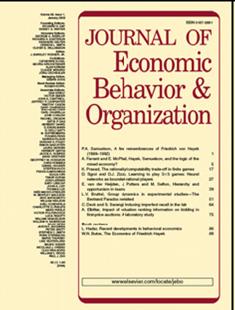Published in:
Journal of Economic Behavior and Organization, December 2019
DOI: 10.1016/j.jebo.2019.10.010
Abstract
We consider an autocracy where the ruling elite control both the resource wealth and education policies. Education prompts economic growth and enriches the budget of the elite. However, education also increases the “awareness of citizens” – capturing their reluctance to accept a dictatorship and their labor market aspirations – and forces the elite to expand redistribution or handover the power. A power handover leads to a more democratic regime, where the elite retains (at least partially) its economic power. This trade-off is the backbone of our Lipsetian theory of voluntary power handover. This theory provides new insights on the positive relationship between economic development, education, and democratization, and on the negative relationship between inequality and democratization. Finally, we revisit the resources-curse hypothesis within our setting.
